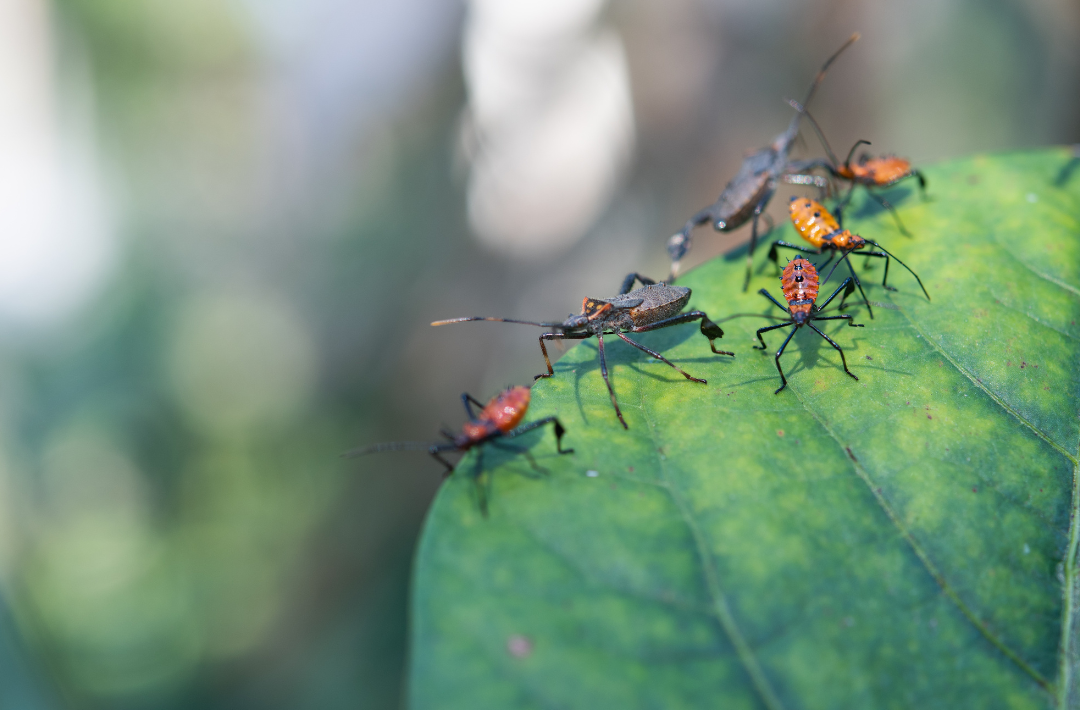While planting your yard with vegetables, which is a fun way to give your kitchen garden a makeover, you might be wondering which pests are eating your crops. While there are dozens of culprits, the ones that tend to cause the most damage include bugs, slugs, moles, voles, and rabbits.
The vegetable garden is a great addition to a home, but it’s a bit of a challenge to keep it pest-free. One of the popular ways people keep their gardens well-maintained is by keeping them indoors. By creating a home extension like a conservatory, gardeners can keep their vegetables protected from infestations. On the specifics of how to do that, you could seek advice from specialists similar to Projects 4 Roofing (https://www.projects4roofing.co.uk/) and others. At the end of the day, the goal is to keep your little veggies safe and healthy. Whether indoors or outdoors, pests are never fun, especially when your food production is on the line. Fortunately, you can take many other practical steps to keep your garden free of pests; read over the tips below.
Step 1: Start Herbicide/Pesticide Treatment
Whether you’re still growing lettuce and tomatoes or growing fall crops like broccoli, cabbage, and cauliflower, you’ll need to protect the plants from pests. Start Herbicide/Pesticide Treatment for vegetables in the garden as early as possible, usually as soon as the plants reach 2 inches in height. However, if you cannot manage this on your own, then get in touch with a Pest Control firm that can do the task properly. They’d know what pesticides and herbicides to use and how to spray them on plants, so your vegetables wouldn’t be harmed.
Step 2: Reduce The Availability of Food for Pests
One of the great things about a vegetable garden is you can grow delicious and nutritious food for yourself and your family. While you might spend lots of time tending to your veggies, pests can make your time in the garden an unpleasant experience. Luckily, you can take a few steps to help make your garden less appealing to pests, reducing your need to spray pesticides.
Step 3: Keep Soil Moist
Watering is an essential way to keep your vegetable garden healthy and productive. The soil needs to be moist but not soaked for healthy growth. When the soil is dry, plants cannot absorb enough water. At the same time, too much water can cause root rot, especially in winter vegetables. However, it is important to water correctly, or you risk overwatering or underwatering, where both can lead to your plants dying.
Step 4: Maintain Good Drainage
The veggies you grow in your vegetable garden will flourish when the soil is well drained, and you’ll have fewer issues with pests such as whiteflies if the soil is moist. Proper spacing between vegetables is also very important since some vegetables will spread and take up more space in the soil than others.
Step 5: Reduce Aeration
Most gardeners are familiar with the holes in banana or potato stems. These holes are created by insects that feed on the living tissue of plants. These pests have evolved to aerate the plant, which is how they gain access to the plants. The holes they create also create an ideal environment for fungal diseases.
Step 6: Control Pest Population
Pests can ruin your hard work in the garden. From aphids to caterpillars to beetles, your garden can be overrun by pests. To keep your garden pest free, you can do a few things to help keep the problem under control. You can start with the soil. More fertile and nutrient-rich soil means fewer pests. You could also plant pest-deterring plants, such as marigolds. The oils in marigolds repel pests. Additionally, remember to pull out weeds regularly, which helps to prevent pests from spreading. Pests can also spread into your garden via your home. Clean your home regularly and get it looked over by specialists similar to Pest Control Heroes at least twice a year. Detecting any rodent or termite problems early could not only help your garden but your home as well. So, do not hesitate when it is time to ask for external help. Otherwise, you might not be able to control the situation, which eventually would compel you to call for professional pest exterminators like the ones at PestControlExperts.com (they are known to offer affordable Terminix Pest Control Plans). So, why dilly-dally? Better sooner than later!
Anyway, coming back to the garden, the vegetables should be planted early, when the plants are small. The plants should be covered to protect them from insects. The vegetable crops should be rotated annually so that pests do not build up.
A vegetable garden is a great way to reap the rewards of growing your own food while also getting your kids involved in something they can take pride in. However, a vegetable garden can be a time-consuming and labor-intensive project. While you can plow, dig and prepare the soil yourself, pests can be harder to deal with and may sometimes require professional help.


